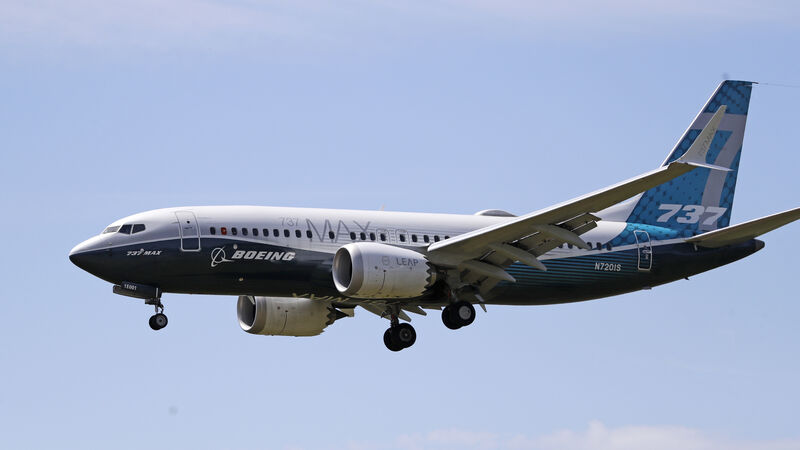Aviation sector set for clearer skies

The anticipated "un-grounding" of Boeing's 737-Max jet offers hope to an aviation industry battered by Covid-19 restrictions. Picture: PA
After much delay, the World Trade Organisation (WTO) finally, last month, approved the EU to raise tariffs of €4bn (€3.4bn) worth of imports from the US as a countermeasure for illegal subsidies to the American aircraft maker Boeing.
The decision enables the EU to slap a 25% import tariff on US whiskey, tobacco, milk concentrates, and agricultural tractors and other machinery. In addition, a 15% import tariff has been listed to apply to aviation parts imports from the US.











